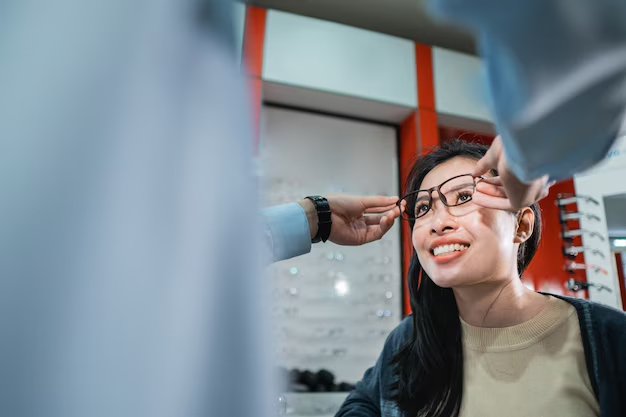When to Get New Glasses After Cataract Surgery: A Comprehensive Guide
If you've recently undergone cataract surgery, you may be eagerly anticipating a return to clear vision. One of your pressing questions could be, "How soon can I get new glasses?" While each person's recovery timeline is unique, understanding what to expect can help you plan your next steps with confidence.
Understanding Cataract Surgery Recovery
Cataract surgery is a common and generally safe procedure aimed at removing the cloudy lens from your eye and replacing it with an artificial one. This surgery often results in significantly improved vision, but the healing process takes time, and your prescription may change during this period.
Typical Post-Surgery Recovery Timeline
- Immediate Post-Surgery Phase (1-3 Days): Your eye may feel itchy or gritty and your vision might be blurry as your eye heals and adjusts. It's crucial to rest and protect your eye during this initial phase.
- First Week to One Month: During this period, follow-up appointments with your ophthalmologist are critical. Your doctor will monitor the healing process and recommend any necessary precautions, including temporary restrictions on activities like swimming and heavy lifting.
- One to Three Months: By the third month, your vision should stabilize, although it's essential to consult with your eye doctor to confirm this.
When Can You Get New Glasses?
The common guideline is that patients should wait at least four to six weeks after cataract surgery to get a new glasses prescription. However, the timeline can vary based on individual healing speeds and outcomes.
Factors Influencing the Timing
- Healing Process: Everyone's eyes heal at different rates. Patience is key to ensuring the best results.
- Vision Stability: Your vision should be stable before getting new glasses. Any fluctuations can result in an inaccurate prescription.
- Doctor’s Recommendation: Follow your ophthalmologist's advice. They will assess your individual recovery and let you know when it's safe to determine a new prescription.
How to Navigate Post-Surgery Vision
Temporary Solutions
While waiting for a stable prescription, you might need interim solutions:
- Reading Glasses: Over-the-counter reading glasses can be useful if you struggle with close-up tasks.
- Sunglasses: Protect your eyes from UV damage with quality sunglasses, especially because your eye may be more sensitive post-surgery.
Clear Vision vs. Protective Eyewear
Immediately after the surgery, your priority should be protecting your eyes:
- Eye Shields: Wear them while sleeping to prevent accidental injury.
- Avoid Complicated Visual Tasks: Give yourself some time before engaging in activities that require sharp vision and high concentration, like driving.
Key Considerations for New Glasses
Choosing Your Frames and Lenses
Once your vision stabilizes, the fun part begins: choosing your frames and lenses.
- Prescription Needs: Consult your eye doctor to ensure your prescription meets your current and future needs.
- Lifestyle and Activities: Consider your daily activities when choosing lenses. Anti-reflective coatings, blue light filters, and photochromic lenses might be beneficial.
- Style: With your prescription sorted, focus on a style that fits your personality and comfort.
Alternative Options for Post-Surgery Vision Care
Glasses are not your only option for vision correction after cataract surgery.
Contact Lenses
For some, contact lenses might be an attractive alternative to glasses, offering convenience and enhanced vision. Consult your eye care professional to see if they're suitable for you post-surgery.
Laser Eye Surgery (LASIK/PRK)
In some cases, laser eye surgery can further correct your vision after cataract surgery. This option is typically considered months after the initial procedure and requires careful assessment by your ophthalmologist.
Caring for Your Eyes Post-Surgery
Routine Eye Care
After cataract surgery, maintaining good eye health is crucial.
- Regular Eye Exams: These appointments can help detect any changes in vision early on.
- Healthy Habits: Protect your eyes from strain by taking regular breaks from screens and staying hydrated.
- UV Protection: Always wear sunglasses while outdoors to protect your eyes from harmful UV rays.
Recognizing When to Seek Help
It's important to know when post-surgery symptoms require medical attention. If you experience sudden vision loss, persistent pain, flashes of light, or increased redness, contact your doctor promptly.
Looking Forward to Clear Vision
Cataract surgery is just the beginning of your journey toward improved vision. With a little patience and careful planning, you'll soon enjoy the benefits of perfectly fitted glasses or other vision correction options.
🌟 Summary of Key Points:
- 👓 Wait Time for New Glasses: Typically 4-6 weeks post-surgery for vision to stabilize.
- ⏳ Patience is Key: Allow time for healing and stabilization based on individual needs.
- 🔍 Monitor Your Vision: Regular check-ups with your ophthalmologist ensure optimal recovery.
- 🕶️ Protective Eyewear: Use sunglasses and eye shields during the initial recovery phase.
- 🤔 Consider Alternatives: Contact lenses or LASIK may be alternatives depending on your vision requirements.
- ✨ Maintain Eye Health: Keep regular eye exams and protect against UV rays.

Related Articles
- Are Cataracts Curable
- Are Cataracts Genetic
- Are Cataracts Hereditary
- Are Cataracts Nuclear Sclerosis
- Are Cataracts Painful
- Are Ivizia Eye Drops Okay After Cataract Surgery
- Are You Awake During Cataract Surgery
- Are You Awake For Cataract Surgery
- Are You Put To Sleep For Cataract Surgery
- Are You Sedated For Cataract Surgery
